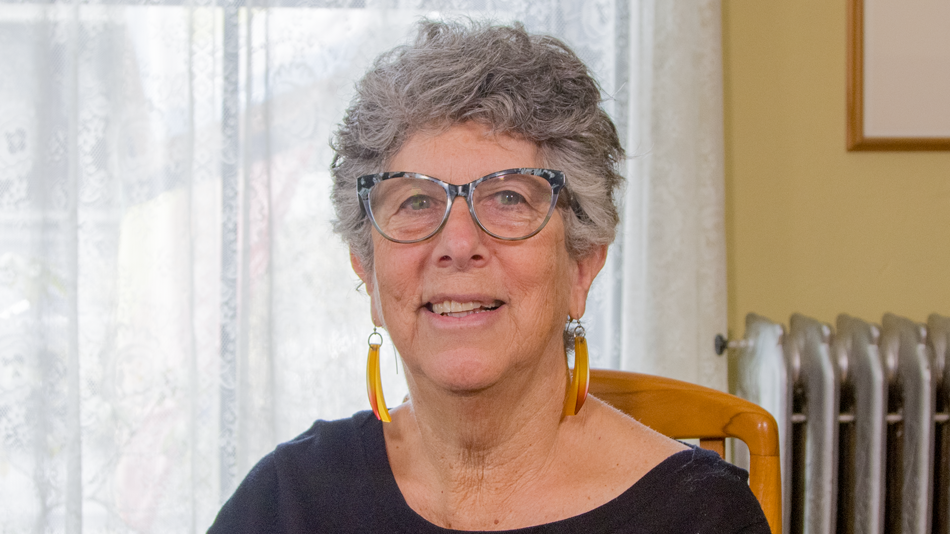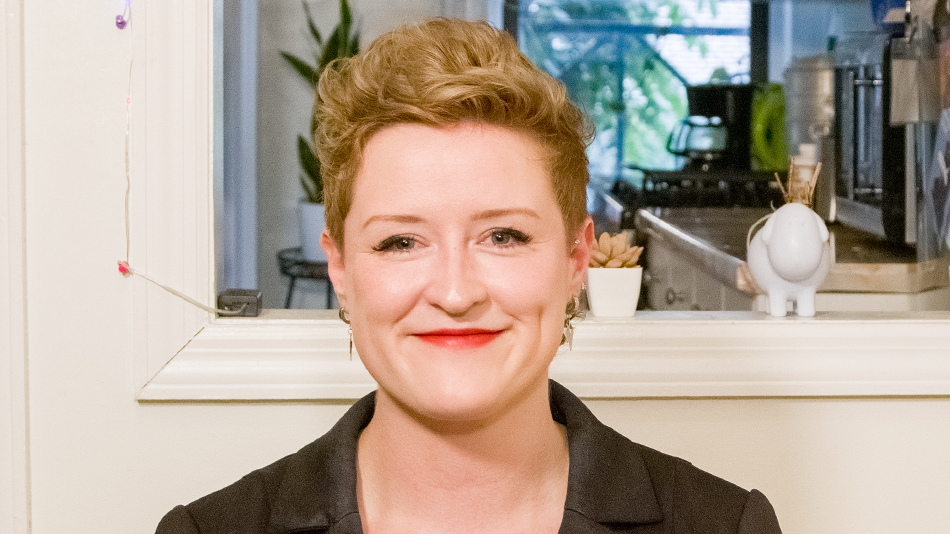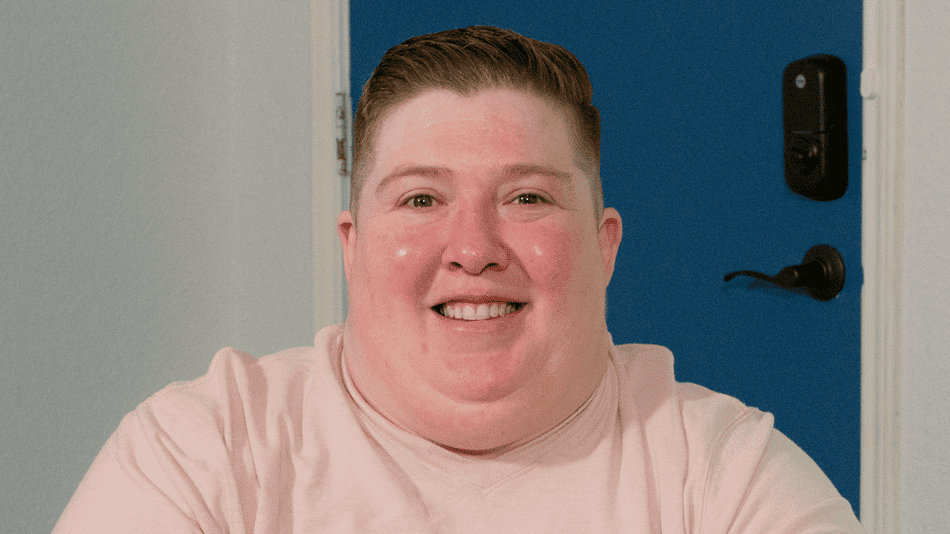My name is Erika Miguel, and I’m from The Bronx, New York.
From age 4 to age 18, I went to catholic school. Every morning at 6am I would put on a button-down, put on my tights, put on a skirt, and then throw on a cardigan sweater and be off to school. When I was 12, I realized that I hated dress-down days. I always kind of felt like I was different from the other girls. I just knew that I was not going to be as fashionable. I wasn’t going to feel as pretty or as feminine as they were. And so that’s the point in my life where I started to feel more comfortable having the uniform.
One day, in my junior year, we had a dress-down day some time in March and I threw on a light blue button-down and black skinny jeans and black leather Timberlands. And I just wore that to dress-down day. And that’s just what I wore because I didn’t know what else to wear.
Years later when I was in college, I went through a different phase. I had come out and I started to dress more masculinely and I shaved my head. And I wore masculine clothing. I almost exclusively wore men’s wear.
And one day when I was hanging out with my high school friends when I was a sophomore in college, we were talking about that dress-down day. And I pretty much turned to them and I said, “Guys…I was wearing black leather Timberlands and a buttondown, how did you not know that I was gay?”
And they looked at me in all earnestness and they said, “Erika, we wouldn’t have known because all we knew was our uniforms, too.
After graduating from Smith, I presented pretty masculinely for the most part. And I brought that with me to the first job that I worked at, my first job after college. I worked for a really big corporate bank with a dress code.
So there was one time, just a normal work day, I was just wearing a black button down. It was more along the lines of a blouse and men’s slacks and Oxford shoes. And I’m walking to the bathroom and I just use the bathroom. And I walk out of the women’s room and the person who had been visiting our office in New York from London walked in front of the women’s room. When she saw me, she frowned and she looked at the sign, looked back at me, kind of frowned again and she was like, “I thought this was the women’s…I thought this was the women’s room.”
And it was scary, it was a little hurtful. But the whole scene itself was very quiet and it was almost uneventful, and I got back to my desk. But it rocked me, and kind of scared me.
So I left the job for a number of reasons but I remember on one of my exit interviews, one of my managers sat me down in a conference room and he really wanted to know why I left, or why I wanted to leave. And he went through the regular questions that they ask you at an exit interview and he asked me, “Did you think that you were challenged at this job?”
And I said, “Yes.”
Did you think that you were supported in your career here?”
And I said, “Yes.”
And then he said, “Come on. What is it? Why do you want to…why do you want to leave?”
And then I just said, “You guys really tried to incorporate me into your group and I’m really happy that we…that we worked together and I’m really happy that I had this opportunity,” but I couldn’t even say “but I didn’t feel safe because I couldn’t be myself.”
So now I’m working at this new job and it’s much smaller from the first job. I work with 30 people in New York but there are 60 people in total. And the vibe is really progressive and everyone’s relatively young and when I first started there, on my second week I went out with a team lunch with my new team and the team lead turns to me and he goes, “Erika, how are you settling in?”
And I turned to him and on that day I was wearing a white tshirt and some forest green joggers and I was wearing my Nike Huaraches, I was super comfortable. And I turned to him and I was like, “Any place that will let me wear sweatpants one day and slacks another day is the right place for me.”
And he just started laughing.
It may be a little hard to show the world that you’re a little bit different than what it expects. I walked out every day and some people might think I’m a woman, most people don’t, especially if you just take a quick glance, but the fact that I could just choose to wear that, to have that flexibility and to kind of just forgive others for hurting me if they ever mis-identify me, that’s all you really can do because all you have is yourself and your body, you should just take as much care of that as you can.








Share